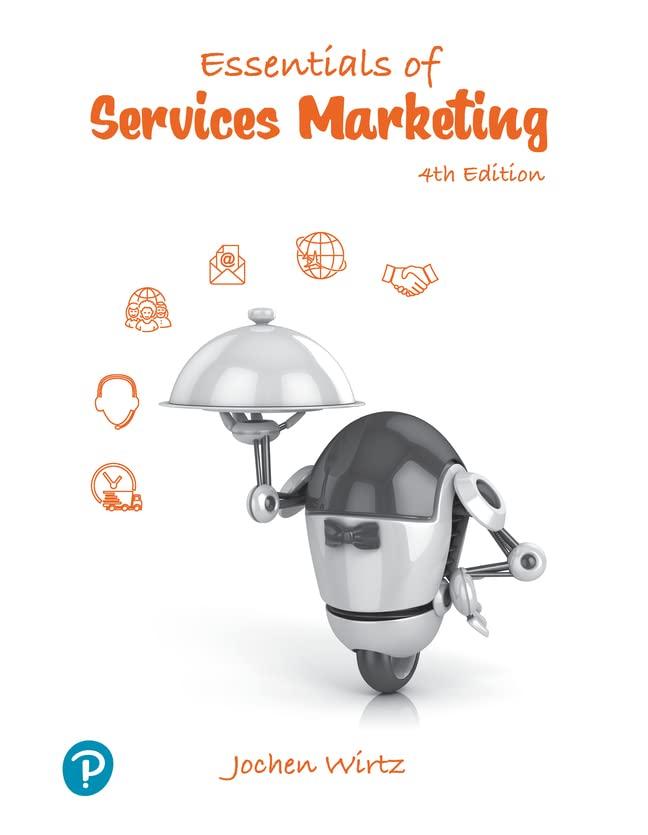Question
2. Opponents of Richard Nixon, the thirty-seventh president of the United States, once raised doubts about his integrity by asking a single ruinous question: Would
2. Opponents of Richard Nixon, the thirty-seventh president of the
United States, once raised doubts about his integrity by asking
a single ruinous question: Would you buy a used car from this
man? your own version of the argument of character.
Begin by choosing an intriguing or controversial person or
group and finding an image online. Then download the image
into a word-processing file. caption for the photo that
is modeled after the question asked about Nixon: Would you
give this woman your email password? Would you share a
campsite with this couple? Would you eat lasagna that this guy
fixed? Finally, a serious argument that explores
· Read Chapter 4 Arguments Based on Facts and Reason: Logos.
Bring to class a full review of a recent film that you either enjoyed or
did not enjoy. Using testimony from that review, write a brief
argument to your classmates explaining why they should see that
movie (or why they should avoid it), being sure to use evidence from
the review fairly and reasonably. Then exchange arguments with a
classmate, and decide whether the evidence in your peer's
argument helps to change your opinion about the movie. What's
convincing about the evidence? If it doesn't convince you, why
doesn't it?
· Read Chapter 5 Fallacies of Argument.
Examine each of the following political slogans or phrases for logical fallacies.
"Resistance is futile." (Borg message on Star Trek: The Next
Generation)
"It's the economy, stupid." (sign on the wall at Bill Clinton's
campaign headquarters)
"Make love, not war." (antiwar slogan popularized during the
Vietnam War)
"Build bridges, not walls." (attributed to Martin Luther King Jr.)
"Stronger Together" (campaign slogan)
"Guns don't kill, people do." (NRA slogan)
"Dog Fighters Are Cowardly Scum." (PETA T-shirt)
"If you can't stand the heat, get out of the kitchen." (attributed
to Harry S Truman)
2. Hone your critical reading skills by choosing a paper you've
written for a college class and analyze it for signs of fallacious
reasoning. Then find an editorial, a syndicated column, and a
news report on the same topic and look for fallacies in them.
Which has the most fallacies—and what kind? What may be the
role of the audience in determining when a statement is
fallacious? How effective do you think the fallacies were in
speaking to their intended audience?
3. Find a Web site that is sponsored by an organization (the
Future of Music Coalition, perhaps), a business (Coca-Cola,
Pepsi), or another group (the Democratic or Republican
National Committee), and analyze the site for fallacious
reasoning. Among other considerations, look at the relationship between text and graphics and between individual
pages and the pages that surround or are linked to them.
4. Political blogs such as Mother Jones and InstaPundit typically
provide quick responses to daily events and detailed critiques
of material in other media sites, including national
newspapers. Study one such blog for a few days to see whether
and how the site critiques the articles, political commentary, or
writers it links to. Does the blog ever point out fallacies of
argument? If so, does it explain the problems with such
reasoning or just assume readers will understand the fallacies?
Summarize your findings in a brief oral report to your class
Step by Step Solution
3.34 Rating (148 Votes )
There are 3 Steps involved in it
Step: 1
Caption for the Photo Would you trust this woman with your email password Would you share a campsite with this couple Would you eat lasagna cooked by this guy Serious Argument Exploring Character In e...
Get Instant Access to Expert-Tailored Solutions
See step-by-step solutions with expert insights and AI powered tools for academic success
Step: 2

Step: 3

Ace Your Homework with AI
Get the answers you need in no time with our AI-driven, step-by-step assistance
Get Started


